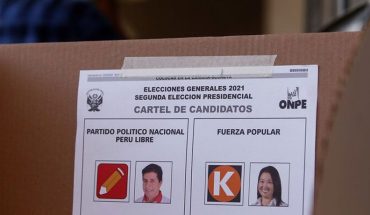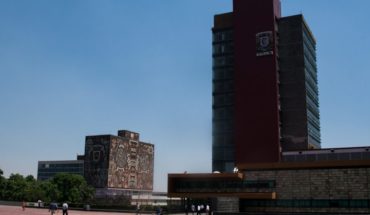Good! As the light begins to glimpse in Chile at the end of the long tunnel of the pandemic, in the rest of the world the flare-ups grow and confinements return.
As we overcome the worst of the health crisis, attention begins to focus on the harshness of the economic crisis and the fact that we are entering the final stretch of the constitutional plebiscite with one of the highest unemployment rates in Chile’s modern history.
Historical figures. Last week we learned that employment in Gran Santiago scored the biggest drop in 38 years and the unemployment rate reached 14.1%, which equates to 436,308 unemployed people in the capital. A survey by the U. Catholic shows that, in the last week of July, 30% of people are not working and the total exceeds 2.7 million. And an estimated 1.3 million inactive workers would be looking for work after deconfi confinement. Economists warn that falling employment has not bottomed out, and there is pressure for the government to take new initiatives.
In my view, two things can happen: either that the employment crisis causes demands to be radicalized in the face of constitutional debate, or that reality forces them to moderate them. The achilles heel of the left in the world has been its economic management. That changed with the emergence of Bill Clinton’s so-called “Third Way” in the United States and Tony Blair in the UK. In Chile it is the way taken by the Concertación, but we all know that the social outburst of October last year, in part, is born as a rejection of these policies. Complex weeks and months are coming.
Before you start with what you call us, if someone shared this newsletter or note, be sure to receive it every Sunday night, signing up for The Weekly HERE. And if you’re already enrolled, you can share it with a friend, family member, or colleague.
1
1 — LATAM’S NEW ROUTE PASSES THROUGH NEW YORK NON-STOP IN CHILE
This week, Judge James L. Garrity’s final decision in the Southern District Court of New York awaits the future of LATAM. The Cueto-controlled airline seeks to restructure $18 billion in debt. The court decision was expected last Friday, but was postponed again. Inside the company they say it could leave at any time from this Monday. Following the judge’s decision, the parties will have a ten-day time limit to appeal.
Options on the table. The judge may decide to approve or reject the complete plan proposed by LATAM (DIP, Debtor in Possession) and which has as a partner the Oaktree fund, or approve Jefferies’ rival proposal, which would now only apply to a portion of the financing scheme. It should be noted that all those who enter as Debtors in Possession (DIP) take precedence over former creditors.
Different investor bets: The so-called C-section of financing, which has already been agreed to by Qatar, the Cueto and the Eblen family with $900 million, promises a high return on a restructured but equity-risk company. But most importantly, he ensures that the Cueto and his associates remain in control.
Inches A and B, which have a payout priority over Section C, are a less risky bet, but do not ensure control. They promise lower returns (between 7 and 10 percent), but with guarantees. Last week the judge rejected Jefferies’ plan for leg A.
It is currently the $1.3 billion that was committed by the Oaktree Capital Management fund and supports the Cueto. Section B is the space for government aid, but LATAM has already ruled it out and believes that it will not be necessary.
In the market and close to the Cueto they estimate that their proposal runs with an advantage, because they propose a plan that includes both tranches (A and C) and that would give access to the company to more than US$2.450 million.
The questioning of Chilean regulatory institutionality. Lawyers in the square who know the case in detail and several local minorities, including two AFPs, question that the entire process about the future of a strategic company and where major shareholders are Chilean, is decided in a court in New York. They do not dispute that the main creditors are outside Chile and that the judge can do their job well. Rather, they point to the fact that the case once again exposes the weakness of Chile’s regulatory system. “The FNE and cmF have been just a bull’s back. Not to mention the 2th Civil Court of Santiago, which in record time gave the lawyers of LATAM (Claro and Co.) everything they asked for”, criticizes a lawyer who has followed the case closely.
A senior executive who manages equity of some of the large fortunes argues that it is unusual for the CMF to act so quietly in the face of a possible bankruptcy of LATAM, “with shareholders/bonaistas/creditors in Chile. I mean, is it enough for the company to have ADRs or bonds in the U.S. to refrain from its regulatory role? And how are you going to ensure that the NY judge’s decisions properly protect Chilean investors/bonistas? Don’t you have anything to say between one DIP and the other? When does what one side or the other says most benefit current controllers? Very strange.”
2
2- CHANNEL 13 IMPROMPTED BET: AT THIS HOUR IT IS IMPROVISED
A classic of Chilean television returns. Many years after its last broadcast, the debate show returns to the screens of Canal 13 on Monday, August 17. Coincidence or not, he returns at a difficult time of Chilean democracy, with institutions reeling, within the framework of a pandemic, in the midst of a social outburst that paused for the coronavirus, and in the face of a constitutional plebiscite.
The problem with the driver. Nicolás Vergara was chosen to be the host of the program by a committee led by Kike Mujica, panelist of T13 Radio and until a few months ago the press director of the channel.
Vergara, business advisor. The driver of “Let’s Talk Off” at Radio Duna, through his agency 3 Consultants, advises companies, entrepreneurs and politicians. His client list is not on the consulting firm’s website, but in the past there was controversy over his role in advising AC Investments executives in the Investigation for Arcane Case Scams. He also advised Andrés Velasco when he was Finance Minister.
What’s the controversy? The problem is that there are people close to the Channel 13 board and the press team who point to their choice presenting transparency problems and reflects a lack of sensitivity to the new times. “Caesar’s wife must be and look like it. We can’t keep using the same formula and then target politicians and entrepreneurs,” says one journalist with years on the television station.
Legal vs. Legal Legitimate. At a time when transparency is demanded and the media, like the rest of the institutions, are experiencing a crisis of legitimacy, the flagship program of the channel of one of Chile’s richest and most influential entrepreneurs, in the face of the plebiscite, will be led by a person whose interests are not entirely clear. Andronicus Luksic and his son Max have the right to give Vergara this responsibility, but it has long been since the elite in Chile that the legal is not necessarily the legitimate.
Vergara isn’t the only one. There are executives and partners from other consultants and communications agencies who also regularly participate in radio, TV or write columns that are also not 100% transparent when it comes to revealing their customers. With them/them the doubt will always remain as to whether what they say/write is taking care of the interests of their client or the public.
Luksic’s interference in selecting the panel. The panel will be composed of lawyer Claudia Bobadilla; the cultural manager Javiera Parada; the economist and former chairman of the board of Codelco’ Orscar Landerretche; and Cristóbal Bellolio, political scientist. Everyone, except Bobadilla, left the committee that Mujica led. Bobadilla, director of Enel Distribution, among others, would have arrived at the request of Andronicus himself and his group of advisors in Quiñenco. The lawyer has been emphatically to point out that companies have an essential social role and that they must take it on actively, and Luksic likes her story.
3
3- THE PROPOSAL OF A CHICAGO BOY TO A MINIMUM GUARANTEED INCOME PER HOUSEHOLD
The IMGH proposed it at the end of last year Manuel Cruzat Valdés and would apply to the poorest 50% in the country.
How it works. The child, the self-employed, the dependent worker, the owner of the house, the loss, the old, the pensioner, the sick person, all are guaranteed a minimum of income that is delivered unconditionally, without small letter and month by month, to the extent that their self-employed income does not reach the minimum level that society defines responsibly with at least 2/3 of its representatives.
The State would cover the difference between the IMGH and the current monetary income of the household in each decil of income, defined as the sum of the household’s employment income, other autonomous income and current state monetary subsidies received by the household.
The cost of the proposal. According to the study estimates, the associated annual tax expenditure would be US$ 12 billion, focused on 50 millionpoorest % (the first five deciles), but also including the sixth. That figure is reached if the base IMGH was set at $856,402 per month per average-sized household of 3.1 members and the agreed policy was to cover 50% of the difference between the monetary income of the household in each decil and the Minimum Guaranteed Income.
The example. Using figures from 2017, the first deci’s First Deci’s Monetary Home Income would go from $190,719 to $523,556 per month, covering the tax cost of $332,837; the second deci, from $356,117 to $606,260, covering the tax supplement of $250,143, and so on.
How it’s funded. Cruzat Valdés’ analysis estimates that the resources to finance a proposal like this could come from reallocations of the current budget and in-depth reviews of its programs and implementation costs, from increases in tax rates and the basis of taxes, as well as the country’s own growth. Key is the elimination of exemptions that reduce tax collection. To access the IMGH it is essential to formalize, which greatly benefits the economy as a whole.
The IMGH could also be part of the solution to the pension problem. The plan is structured as if it were a negative income tax, in which under a certain level the state charges income, and that on it the State begins to collect taxes. The individual capitalization account remains in place, with a minimum of income that accompanies it throughout life, including old age. It should then be an integral part of a global scheme that guarantees staggered minimums that seek to incentivize effort.
4
4- THE CHART OF THE WEEK
Dismissals and job precariousness: data following the deep media crisis in Chile. It is the work of Polet Herrera, Patricio Aguilera and Maximilano Echegoyen, and was published on the Site Puroperiodismo. It reveals that in the last 4 years at least 2,460 professionals have lost their jobs.
The social outburst and pandemic by COVID-19 exacerbated a crisis that has been hitting the industry for a long time. The reason: the digital revolution. Perhaps symbolic is that El Mercurio, dean of the industry, was forced to pay part of his July wages in days and in many cases in two installments (although within the first 5 days of the month permitted by law).
5
5- NO TACOS OR TIE
-Job offer. Tyndall Group, the investment bank founded a few years ago by former JP Morgan and considered the “most bacan” place to work in Sanhattan, needs people. And congratulations. With unemployment at historic levels, it is no less than companies that need people.
“Are you passionate about finance and looking to be part of a team that works in a dynamic and challenging environment?” is the notice circulating in networks and on the company’s website and with which Tyndall invites to participate in an online informative presentation, with which the selection process is initiated.
–Felipe Larraín reappears. The former minister of the Treasury has been pretty quiet since he left the government. This Tuesday he will be one of the panelists of the event organized by Columbia University in Chile and the Chilean Pacific Foundation.
The talk may be interesting, as alongside him will be the economist Jeffrey D. Sachs, director of the Center for Sustainable Development at Columbia University, and possessing a rather progre/social democrat look. The conversation will be moderated by Karen Poniachik, a journalist, former Minister of Energy and Mining during President Michelle Bachelet’s first government.
6
6- QUESTIONS TO HERMANN GONZELEZ
Until January of this year he was head of advisors to the Ministry of Finance and macroeconomic coordinator of the Government of Sebastián Piñera. Previously, Rodrigo Vergara had appointed him to the Tax Board. The now coordinator of the macro area of the Clapes UC Study Center is considered one of the best economists of his generation (40 years) and in this short interview he tells us what he would do if he was left in charge of the fiscal wallet with real powers.
-Chile went from being a net creditor in the 2000s, but with huge social deficits. Today we’re paying the price. Were we too conservative?
-I do not agree with blaming the tax lead of the last 30 years of the social deficits that exist in our country. I believe that the strategy pursued by different governments since the early 1990s was the right one, because fiscal responsibility is what has allowed our country to have a very favourable sovereign risk classification, differentiate itself from other countries in the region, access low interest rates and be an attractive country for local and foreign investment, which is the basis for growth, job creation and economic development.
I think rather thats deficits that we have today stem from, on the one hand, the contempt of some for economic growth and the role of private initiative and, on the other hand, in the poor quality of political debate and some public policies, which have prevented the priorities of Chileans from being answered in due.
The State alone is not able to solve all the problems of the population, we must demand more from it, there is no doubt, but above all we must demand more from a part of the private sector, which must substantially improve its relationship and treatment with workers and make greater efforts to live up to the times.
-Do you think it is necessary to at least debate a tax on large fortunes?
-Today is not the time to have this debate, which we had at the end of last year and was resolved with a broad political agreement. The memory is very short in Chile. The tax reform passed e early this year collects almost one point of GDP under the regime and most of that revenue is due to measures aimed at taxing older people.
On the other hand, the proposed measure, in addition to being full of constitutional defects, is again a bad public policy, does not collect what is expected, generates adverse economic effects and for good reasons is not a tax used in the countries we use as a reference. Moreover, what we need to discuss today is how we kicked the economy out and recover the more than 2 million jobs lost and that is done with less tax (transitionally), not with more taxes. Initiatives such as instant depreciation and corporate tax rebate for SMEs discussed in Congress is what we need and the opposition has been responsible for obstructing the project, just as it did with tax reform in 2018.
-The challenges for the Chilean model in 240 characters (more or less).
-On the private side, the Chilean model must be more inclusive than it has been so far. Companies cannot simply invest, create jobs and pay pay for pay, but must create better working conditions and care much more about the well-being of their workers. In addition, a more modern, agile state that provides timely responses to the needs of the most vulnerable population must be added.
-Bonus Track: you are appointed Minister of Finance with full powers, 3 measures you would take and why.
-In my opinion, the Treasury’s remaining axes should be job recovery, improved pensions and strengthening the medium-term fiscal framework.
It is clear that today the main urgency is to revive the economy and recover the more than 2 million jobs that have been lost to the pandemic. The role of the Treasury in this process is key, because greater fiscal resources will be needed, but also because it is the ministry responsible – together with Economía – to generate the public policies that are needed for this purpose, to put the right incentives and facilitate the recovery of private investment.
Pension reform is a pressing need for citizens and we have been in this discussion for a long time. I do not think it is possible to pass this Government into reaching an agreement on this matter, which will improve the pensions of all Chileans.
Finally, I think it is essential that this Government reaches agreement with the opposition on the medium-term fiscal framework. The fiscal effort of recent months has been significant and needed to be done, but today we do not have a fiscal anchor and the figures must be re-implemented. This agreement should include aspects such as the design of the tax rule, the strengthening of the Autonomous Tax Council and a new tax liability law.
7
7- AGENDA
–A week in which the Central Bank will dominate the agenda: on Tuesday the BC publishes the Quarterly National Accounts (2nd T 2020) and the Quarterly Balance of Payments and International Investment Position Report.
–ICARE Forum (Thursday 20): the focus is on the international stage: “A difficult economy”. The opening will be led by former President of the Central Bank, Vittorio Corbo and the moderator will be Jorge Becerra of the Boston Consulting Group. The panellists: Vivianne Blanlot, Vice President of ICARE; Roberto Murchison, president of IDEA Argentina (it’s like ICARE); José Carlos Saavedra (also the same as ICARE, but in PERU). It would be a surprise if very challenging debates or big disagreements arise.
8
8- COUNTER DIALOGUES
Joaquín Villarino and postpandemia mining: “It will be greener, more inclusive and with dramatic changes in the way we work.”
In this new chapter of Diálogos de El Mostrador (VIDEO), we brought together the President of the Mining Council, Joaquín Villarino, with Maurizio Bezzeccheri, CEO of Enel Americas, to discuss the role of mining and energy in construction(r) a more inclusive and sustainable economy in postpandemia Chile. The Italian top executive said the country is “in a privileged position to lead a green revolution. Villarino took the opportunity to express the position of mining in the face of the coming constitutional debate and addressed the ever-controversial issue of the royaltyminer.
(VIDEO)
That’s all for this week. If you have a comment or information to share with us, write to me at ivan@elmostrador.cl or follow me on twitter @ivanwese and Instagram @ivanwese
Sign up for The Weekly HERE





